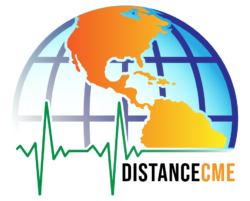The autonomic nervous system, which is subdivided into the sympathetic and parasympathetic nervous system, plays a critical role in how the body responds to the stressors we encounter. Our body uses a negative feedback loop to respond to those stressors. As our body encounters a stressor, the sympathetic nervous system releases hormones into the bloodstream. Epinephrine, aka adrenalin, and norepinephrine increase your heart rate, respiratory rate, and blood pressure allowing us to compensate for injuries.
Sympathetic Nervous System:
The sympathetic nervous system, aka the “fight or flight” nervous system, also uses microcirculation to shunt blood away from nonessential areas, like the skin and redirects the blood to the core of the body, brain, heart, lungs, and major muscle groups. As the stressor increases, so does the amount of epinephrine and norepinephrine that is released into the bloodstream.
How does microcirculation shunt blood away from nonessential areas? Between the arterioles and the capillaries is a muscle called the precapillary sphincter. This muscle contracts and limits, or even stops, blood from entering an area.
How can you tell the patient’s sympathetic nervous system is engaged? The vital signs are increased and the patient’s skin which is normally “pink, warm, and dry” becomes, pale and diaphoretic as the blood is redirected to the core of the body, the heart, brain, lungs, and kidneys.
How can we tell if a person with dark skin pigmentation is directing blood away from the skin? Assess the mucous membranes, palms of the hands, and the cheeks and gums for a pale appearance.
Parasympathetic Nervous System:
The parasympathetic nervous system is the opposite of the sympathetic nervous system, often called the “rest and digest” nervous system. The parasympathetic nervous system activates when you are relaxing after you’ve eaten, or when you are engaging in sexual activity. Your vital signs will also become lower, and blood is directed to the gastrointestinal system.
For those who celebrate Thanksgiving, is it the tryptophan in the turkey that makes you tired? No, that is an old wife’s tale. When you overeat, the gastrointestinal system becomes overwhelmed and redirects as much blood as possible to the GI tract to deal with the excessive food that was consumed. As there is less blood available to perfuse the brain, you become tired, and your body wants to shut down and take a nap.
You can force your parasympathetic nervous system to activate. The primary nerve of the parasympathetic nervous system is cranial nerve X, the vagus nerve, it enters the heart at the SA node and exits out the AV node on its way down to the rectum. When you are defecating you “bear down.” This act engages the parasympathetic nervous system and slows down your heart rate, and blood pressure because that vagus nerve passes through the heart.
If you strain too hard your heart rate and blood pressure will drop too much and you will faint. This act is reportedly what killed Elvis Presley. His heart was weakened from years of drug abuse and when he was defecating, he strained his heart too much when combined with the decrease in heart rate and lowered blood pressure he went into cardiac arrest and died.
Reference:
Pollack, A.N. (2018). Nancy Caroline’s Emergency Care in the Streets. Jones & Bartlett Pub. Burlington, MA.
